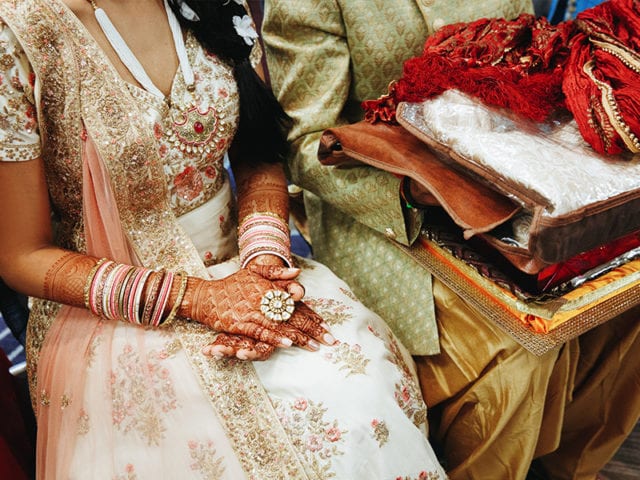Women in our country begin to get their shaadi-grooming lessons, right from when they start walking their first steps. It begins with the fairy tales read to us at bedtime—Cinderella, Rapunzel and Snow White, each one about a different woman, yet all of them meeting the same end—the prince saving the princess and making her his queen. The grooming then moves on to the various practices we’re asked to adopt only to improve our marital prospects—our naanis and daadis scolding us for playing in the sun because if we become dark, men will not want to get married to us. Our mothers almost cajoling us into entering the kitchen and learning how to make ‘gol chapatis’. Because the rounder the rotis, the better the marriage prospects. The neighbourhood aunty advised us to observe the solah somvaar fast to please the Lords, again, in a bid to be blessed with good husbands.

The subject of marriage somehow creeps in and finds its way into every life action and decision. And of course, there is constant advice from the elders of the family to the parents about getting their daughter married at the ‘right time’. About ‘young marriages’ being successful marriages. Because according to them the younger the couple, the better their chances at adjustment, parenthood, and life in general.
I’m not contesting this age-old advice; I don’t advocate it either. While I do believe getting married young has its own advantages, I’ve often also seen some women deal with the negative effects of it. A friend of mine would’ve liked to study further and get a masters degree, but she couldn’t owing to home and family responsibilities. Yet another, wanted to start a business at 24 but it took her 10 years, because her in-laws really wanted to be grandparents and she had to wait till both her children were grown up to be able to pursue her entrepreneurial ambitions. Another had it even worse. She was stuck in a toxic marriage that she was unable to walk out of because she had given up her job and her financial independence when she got married. I’ve personally come to the conclusion that there really is no ‘right time’ for marriage. It varies from individual to individual, their life goals and their priorities, and both partners’ ability to accept each other’s choices and live them… till death do them part.
Recently, the Supreme Court passed a resolution increasing the legal age for women to get married from 18 to 21 years, citing several social and biological benefits of the decision. While I do welcome the change from a biological standpoint, I am a little skeptical on whether on its own, the change of law will be able to drive actual change. In a social structure where we still continue to advocate marriage before a certain age, where we constantly judge women who are unmarried at 30, and where in certain parts of the country, child marriages are still a rampant practice, what would the real implications be?
In western societies, marriage is a decision usually taken very independently with little or no family involvement. In fact, it is common practice for people to jump into marriage if they feel like they’ve found ‘the one’. In Indian society, however, such decisions are driven by families… and buas, and chachis, and maasis, and taujis, and dadajis, and the entire khaandaan.
Parents who usually get their daughters married as early as 18, do so either due to social pressure, familial obligations, financial reasons, or just because they’re conditioned to think it is one of their key, if not ultimate responsibilities as a parent. Sometimes, even though the parents would like the daughter to study further and maybe even work, lack of either financial resources or opportunities for women leave them with no other choice but to get her married; it helps them rest easy to feel like she is financially and socially secure in wedlock and is now the husband’s responsibility.
I wonder how moving the age up to 21 will bring about any real kind of change. Because if you do the math, the average Indian girl at 18 has completed her high school education. At 21, she would be a fresh college graduate. In either case, she is still dependent on her parents/spouse for financial support.
Don’t get me wrong, I’m not saying that the age should be increased further. All I’m saying is that for this law to genuinely work in the direction for which it was designed, women should have other opportunities available to them when the time comes. Right from educational scholarships and waivers, to access to jobs unshackled by the gender wage gap, to parents who are as gung-ho about entrepreneurial ambitions as they are about marriage prospects, ensure that marriage for women is a real choice—and not the ‘only option’. So that the decision to get married is driven by personal choice and a sense of readiness, not because they’ve reached a certain age – legally and otherwise.